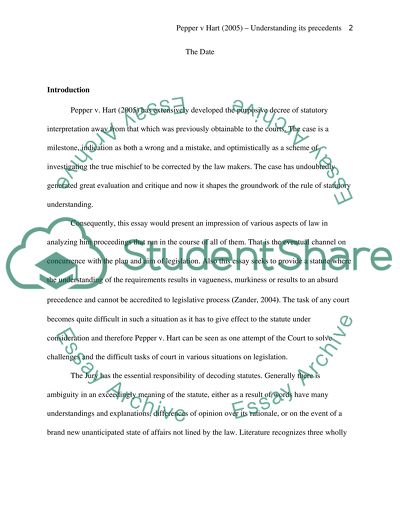Cite this document
(“Law Quarterly Review 2005 Pepper v Hart and matters of constitutional Essay”, n.d.)
Retrieved from https://studentshare.org/law/1635632-law-quarterly-review-2005-pepper-v-hart-and-matters-of-constitutional-principle-aileen-kavanagh
Retrieved from https://studentshare.org/law/1635632-law-quarterly-review-2005-pepper-v-hart-and-matters-of-constitutional-principle-aileen-kavanagh
(Law Quarterly Review 2005 Pepper V Hart and Matters of Constitutional Essay)
https://studentshare.org/law/1635632-law-quarterly-review-2005-pepper-v-hart-and-matters-of-constitutional-principle-aileen-kavanagh.
https://studentshare.org/law/1635632-law-quarterly-review-2005-pepper-v-hart-and-matters-of-constitutional-principle-aileen-kavanagh.
“Law Quarterly Review 2005 Pepper V Hart and Matters of Constitutional Essay”, n.d. https://studentshare.org/law/1635632-law-quarterly-review-2005-pepper-v-hart-and-matters-of-constitutional-principle-aileen-kavanagh.


